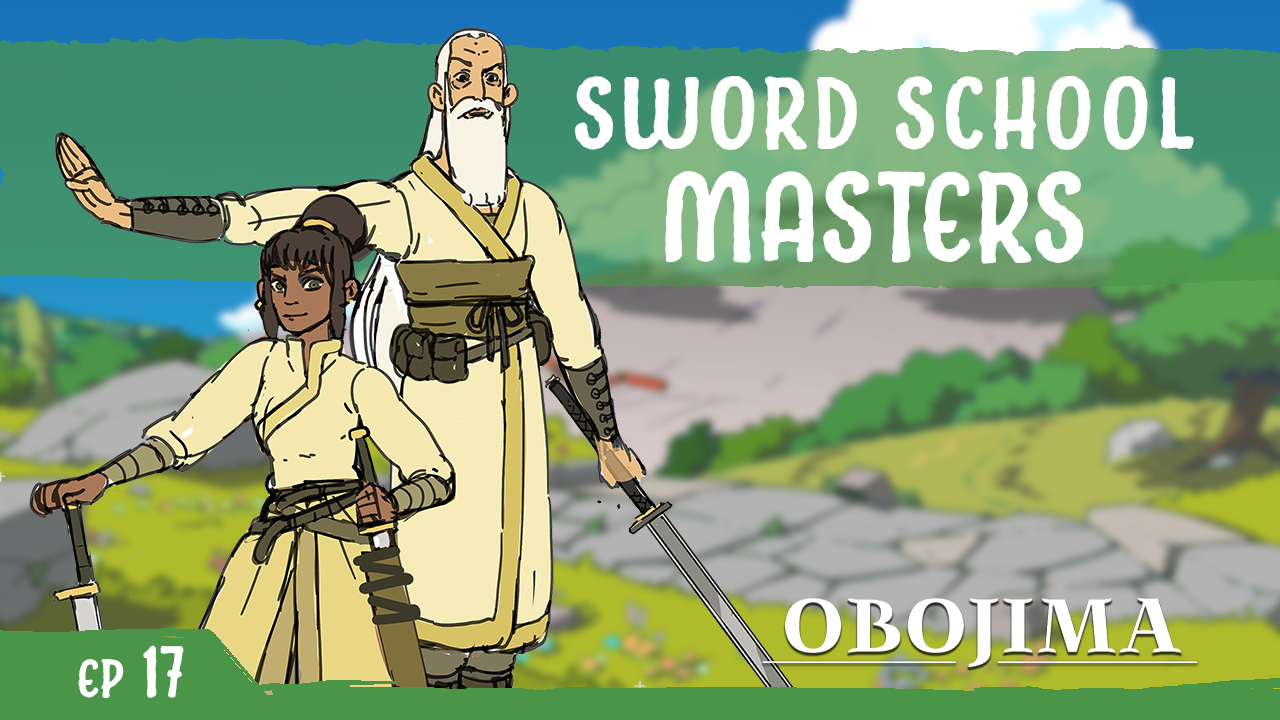
The Obojima Podcast the Blog | Episode 17: Sword Schools, Training Duels, and Narrative Mechanics
This blog post was made using dictation summary software, and posted for SEO purposes. If you really want to know what this episode is about, check out the full episode here: https://youtu.be/O1Z78uQddX4?feature=shared
What's up, fellow adventurers? Welcome to the Obojima Podcast! This podcast explores the creative process behind Obojima: Bangers from the Tall Grass. In our latest episode we're bringing the swords—and the ruckus!
All right, we got a little fanciful there. Let's keep it real and take a look at episode 17 of the Obojima Podcast, your source for the creative process behind Obojima: Tales from the Tall Grass!
First things first, let’s meet our intrepid crew of writers:
-
Jeremiah Crofton - The Creative Director of 1985 Games and the creator of Obojima.
-
Ari Levitch - Head Writer
-
Adam Lee - Head Writer
In this session, the team dives into sword schools—a narrative and mechanical system that blends roleplaying, training, and ritual duels to create engaging gameplay for D&D and tabletop adventures. D&D rules everything around us!
Sword Schools: Where Story Meets Skill
Sword schools are more than training grounds—they are a dedicated game mechanic where players earn invitations, train, and face ritual duels that unlock unique feats. Swords exist only within these schools, giving duels narrative weight and mechanical depth. Progression feels earned, with incremental training sessions gradually reducing a master’s high AC and preparing students for the ultimate duel.
Training, Duels, and Mastery
Training involves careful planning: players train over weeks, engaging in exercises like 15 Nakudama hops, 6 sheep dragon crawls, and 25 Dara rolls. Duel challenges follow strict rules—no magic, timed rounds, and reactionary initiative—ensuring skill, strategy, and story integration. Each school features two masters with complementary styles, allowing players to choose between offense-heavy or defensive-focused training.
Mastery and Feats
Specific feats, such as the Canden and Moon combination, reward dedicated players with bonuses like reaction-based attacks, +5 AC defensive reactions, and movement perks. This system marries narrative engagement with tactical choice, creating a satisfying sense of accomplishment.
World-Building and School Culture
The podcast also delves into the architecture and culture of the schools. Buildings may include repurposed warehouses, gymnasiums, boarding schools, and decentralized apartments. Regional rivalries—from the Brackwater Wetlands to The Gift of Shuritashi—add flavor, contrasting aggressive frontier styles with refined city training methods.
Adventure Hooks and Narrative Integration
Beyond combat, sword schools integrate story-driven adventure hooks: defeating monsters, completing training routines, or engaging in non-combat challenges. These hooks enhance the broader narrative without forcing players to focus solely on duels, balancing progression with world exploration.
Conclusion
Episode 17 highlights how sword schools enrich Obojima:
-
Schools integrate narrative and mechanical progression.
-
Incremental training and duel mechanics reward skill mastery.
-
Distinct master styles add tactical and storytelling depth.
-
Adventure hooks combine combat, roleplaying, and exploration.
-
Schools are deeply embedded in world-building, rivalries, and culture.
- Masters teach you how to protect ya neck, and that's real, yo.
Check out the full episode here: https://youtu.be/O1Z78uQddX4?feature=shared


